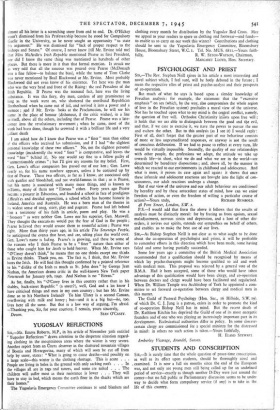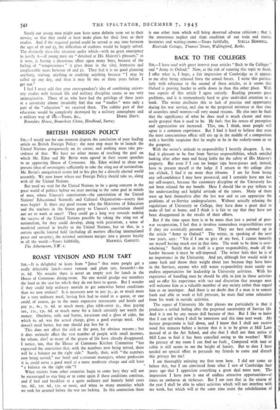STUDENTS AND CONSCRIPTION
sm,—It is surely time that the whole question of peace-time conscription. as well as its effect upon students, should be thoroughly aired and examined. It is now a full six months since the end of the European war, and not only are young men still being called up for an undefined period of service—exactly as though another D-Day were just around the corner—but no full public or Parliamentary discussion seems to be under way to decide what form compulsory service (if any) is to take in the life of this country. Surely our young men might now have some definite term set to their service, so that they could at least make plans for their lives or their studies. And if the required period could be served at any time between the ages of 18 and 23, the difficulties of students would be largely solved. The distinctly slave-like situation under which—with no great emergency to justify it—all young men are "detained at His Majesty's pleasure," as it were, is having a disastrous effect upon many boys, because of the feeling of " temporariness " it gives them in the vital, formative and irreplaceable years between 18 and 21. They feel it is no good planning anything, starting anything or studying anything because "I may be called up any day, and then it may be two or three years before I get out."
I feel I must add that your correspondent's idea of combining univer- sity studies with barrack life and military discipline seems to me very unimaginative. Those of us who have had the privilege of three years at a university almost invariably feel that our " studies " were only a part of the " education " we jeceiyed there. The subtler part of that education would be completely destroyed by a military atmosphere and































 Previous page
Previous page